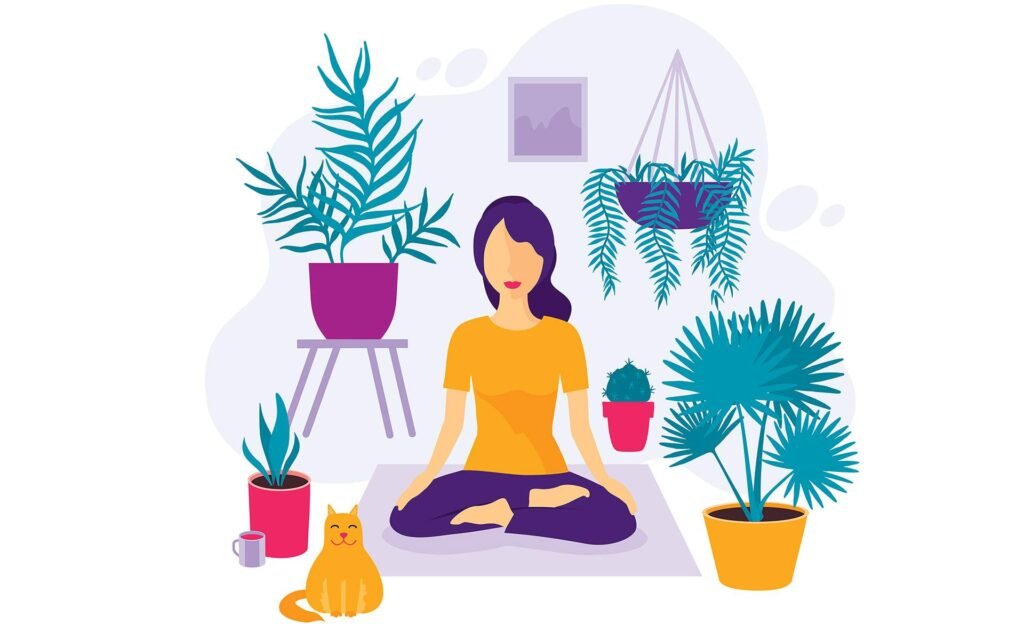Zen Your Way to Better Mental Health: A Beginner’s Guide to Meditation
Meditation has been around for thousands of years, but in recent times, it’s made its way into the mainstream, especially as people are becoming more aware of their mental health. With stress, anxiety, and burnout on the rise, meditation has emerged as one of the most effective ways to combat these challenges. But if you’re new to the practice, it can feel overwhelming. Don’t worry, though creating a meditation practice isn’t as complicated as it may seem. Let’s dive into some beginner-friendly tips that can help you start your journey to better mental health with meditation.
Why Meditate?
First things first, why should you meditate? Well, it turns out that meditation has a laundry list of benefits for your mental health. It can help reduce anxiety, improve focus, boost mood, and increase emotional resilience. Studies have even shown that regular meditation can change the structure of your brain, making it easier to manage stress and regulate emotions. So, in a nutshell, it’s like a workout for your mind, helping you develop better mental health fitness over time.

Getting Started: Where to Begin?
Meditation doesn’t require any fancy equipment or a specific location—just you, a quiet spot, and a willingness to learn. Here’s how to start:
- Pick Your Time and Place
Consistency is key, so choose a time of day that works best for you. It could be first thing in the morning to set the tone for your day or in the evening to unwind before bed. Find a quiet spot where you won’t be disturbed—this could be a corner of your room, a peaceful park bench, or even your couch (yes, you can meditate sitting down!). - Start Small: 5-10 Minutes Is Enough
As a beginner, don’t stress about meditating for hours. Start with just 5-10 minutes a day and gradually increase the duration as you get more comfortable. Remember, meditation is a practice, not a competition. - Focus on Your Breath
The simplest way to meditate is to focus on your breath. Sit comfortably, close your eyes, and pay attention to the sensation of your breath coming in and out. If your mind wanders (which it will!), gently bring it back to your breath. It’s normal for your thoughts to wander—it’s part of the process! - Use Guided Meditation (If You Need It)
If sitting in silence feels daunting, try guided meditation. There are plenty of apps and YouTube videos that offer guided sessions, helping you stay on track with prompts, soothing music, and visualizations. Apps like Headspace or Calm are perfect for beginners. - Be Kind to Yourself
One of the most important tips is to be patient and kind to yourself. It’s normal for your mind to wander or for you to feel restless in the beginning. Meditation isn’t about perfection—it’s about presence. Don’t judge yourself if you struggle, and don’t give up. Keep showing up, even if it’s just for a few minutes.

On World Meditation Day, May 21, we’re given a gentle nudge to pause and reflect on the power of stillness in our busy lives. In a world filled with noise, distractions, and constant movement, it’s easy to forget the simple yet transformative practice of meditation. Today is a perfect reminder that taking just a few moments to breathe, center ourselves, and cultivate mindfulness can make a world of difference to our mental health. Whether you’re new to meditation or already have a practice in place, World Meditation Day invites us to reconnect with ourselves and appreciate the profound benefits of slowing down. It’s a day to celebrate the quiet strength meditation offers, allowing us to find balance, reduce stress, and improve our emotional well-being.
In Conclusion: Stick With It!
Meditation isn’t a quick fix, but the benefits are definitely worth the effort. By starting with short, simple sessions and being patient with yourself, you’ll gradually develop a meditation practice that fits into your life. Over time, you’ll begin to notice improvements in your mental health, from reduced anxiety to greater emotional balance. So, give it a try, embrace the quiet moments, and zen your way to better mental health—one breath at a time!
Found this helpful? Subscribe below for more



